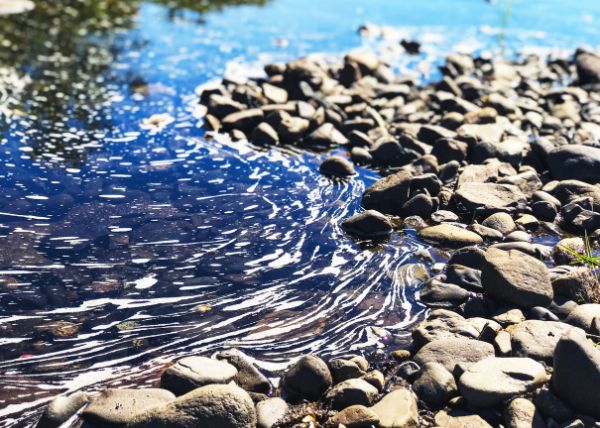Water contamination occurs when pollutants or harmful substances enter the water supply, making it unsafe for consumption or use. This can happen due to industrial spills, chemical leaks, or inadequate waste management practices. Those affected by water contamination may experience health issues, property damage, or financial losses.
Filing a water contamination lawsuit requires strong evidence and documentation. It is crucial to gather all the necessary paperwork to support your case and increase your chances of a successful outcome. This article will discuss the essential documents needed to file a water contamination lawsuit and help you understand the process involved. By being well-informed and prepared, you can seek justice and hold those responsible accountable for the harm caused by water contamination.

Gathering pertinent documents is essential when considering legal action for water contamination. These documents serve as critical evidence to substantiate claims and build a compelling case against the responsible parties. Here's a breakdown of the key documents required:
Obtain official reports from relevant authorities documenting water quality tests and analyses. These reports outline contamination levels, identifying the pollutants present and their concentrations in the water supply.
Gather medical records indicating health issues or illnesses attributed to water contamination. Documentation of diagnoses, treatments, and related expenses is crucial to link health problems to the contaminated water.
Collect property records and surveys, especially if the contamination has caused damage to real estate or affected property values. This includes records of property assessments, land surveys, and appraisals.
Compile utility bills detailing water usage and payments, providing a timeline of when the contaminated water was used. These bills can establish a correlation between the period of water usage and reported contamination.
Preserve any correspondence with water utility companies, local authorities, or regulatory agencies regarding water quality concerns. This includes emails, letters, or notes documenting complaints and responses.
If available, include reports from environmental experts or specialists who conducted assessments of the water source. These reports can offer professional opinions on the cause and extent of contamination.
Document any damages incurred due to water contamination, such as property repairs, medical expenses, loss of income, or diminished property values. Maintain receipts, invoices, and estimates related to these expenses.
Obtain documents related to regulatory compliance of entities responsible for water management. This includes permits, compliance reports, and any records indicating adherence to environmental regulations.
If available, gather statements or testimonies from witnesses who observed or were affected by the water contamination. These can corroborate claims and strengthen the case.
Retain records of communication with legal representatives, including engagement agreements, attorney-client communications, and any legal advice sought regarding the contamination issue.
Compiling and organizing these documents is pivotal in supporting a water contamination lawsuit. Working with legal experts experienced in environmental law can further guide the collection and presentation of these materials, bolstering the case for seeking justice and compensation for the damages caused by water contamination.
Water contamination can manifest in various ways, affecting both physical health and overall well-being. Recognizing the symptoms associated with consuming or being exposed to contaminated water is crucial for timely intervention and seeking appropriate medical attention. Here are common symptoms indicative of water contamination:
Recognizing these symptoms or observations related to water contamination is crucial for swift action. If you suspect water contamination or experience any of these symptoms after water exposure, seek medical advice promptly and report water quality concerns to relevant authorities for investigation and remediation.
Water contamination can occur through various means, leading to detrimental effects on both public health and the environment. Understanding the avenues through which water can become compromised is crucial in identifying potential sources for a contamination lawsuit.
Industrial activities often involve the use and disposal of chemicals that, if mishandled or improperly managed, can seep into groundwater or nearby water bodies. Improper waste disposal, chemical leaks, or accidents in industrial settings pose significant contamination risks.
Pesticides, fertilizers, and animal waste from agricultural operations can leach into water sources, especially during heavy rains or irrigation. Runoff from farms can carry pollutants into rivers, lakes, and groundwater, impacting water quality.
Aging or poorly maintained infrastructure, such as corroded pipes, malfunctioning sewage systems, or outdated treatment facilities, can introduce contaminants into drinking water supplies. Infrastructure failures may lead to harmful substances entering the water distribution system.
Natural events like floods, landslides, or geological shifts can disturb the land, potentially causing pollutants or naturally occurring substances to infiltrate water sources. Additionally, bacteria, viruses, or other microorganisms can contaminate water naturally.
Improper disposal of household or industrial waste, including dumping hazardous materials into waterways or septic systems, poses a significant risk of contamination. Landfills and waste disposal sites near water sources can also contribute to pollution.
Extractive industries like mining and hydraulic fracturing (fracking) have the potential to release harmful chemicals and heavy metals into groundwater and surface water if not managed carefully, leading to widespread contamination concerns.
Water contamination can stem from various sources, each posing unique challenges in identifying and addressing the issue. Recognizing the potential causes is a crucial step in building a case for a water contamination lawsuit and holding responsible parties accountable for the damages caused.
Water contamination affects large populations. Therefore, it's likely that class action lawsuits may be filed in cases of widespread water contamination. A class action lawsuit allows a group of individuals who have been affected by the same issue to collectively seek legal recourse.
In a water contamination class action lawsuit, the affected individuals come together as a group or class and file a lawsuit against the responsible party or parties. This can include government entities, corporations, or other entities that may have caused the contamination through their actions or negligence. To get involved in a class action lawsuit, individuals typically need to meet certain criteria, such as living in a specific area or being exposed to a contaminated water source.
If you've been affected by water contamination, file a claim today. Our expert partner attorneys always offer free consultations for your claim.